

Many charter school advocates — often guided by a “free market” ideology — claim that charter schools force traditional public schools to innovate and provide better education. But in Detroit, where teachers and parents this week performed “walk ins” to show support for the city’s ailing public schools, the exact opposite has been true.
Detroit’s schools are in rough shape. The city’s traditional public school district, Detroit Public Schools (DPS), could face bankruptcy by April. On a recent tour of DPS schools, Mayor Mike Duggan found crumbling facilities, dead rodents, and children wearing coats in freezing classrooms.
But even though Detroit’s residents elected him, Duggan can’t do much to help. DPS has been under state control for seven years, ruled by a series of “emergency managers” with unchecked authority over democratically elected local officials. The same tactic of “running government like a business” played a crucial role in the Flint water crisis.
» Read more about: Running Schools Like Businesses — Into the Ground »
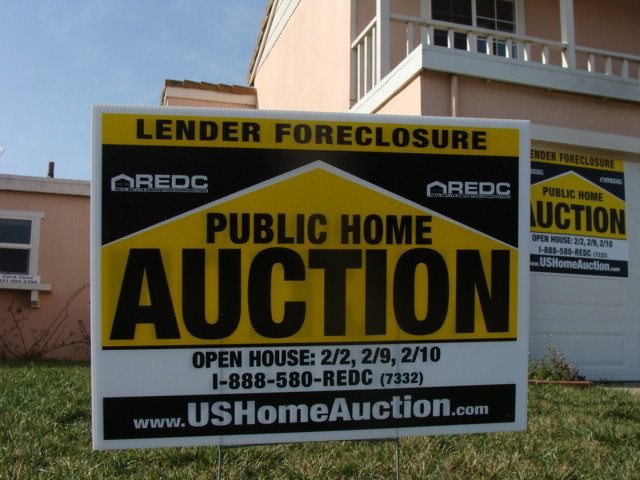

It’s not news that it is tougher to buy a home in the U.S. than it was 40 years ago. But what may come as a surprise to the roughly 7. 7 million Californians financially secure enough to own their homes is how the state’s inadequate and loophole-riddled bankruptcy protections too often make it impossible to hold onto that piece of the American Dream, just when it’s needed most. The problem lies with the law’s “homestead exemption,” a provision intended to shield a core amount of a bankrupt debtor’s home equity, when a court forces the sale of the house, in order to allow that debtor to land on their feet with a roof over their head and start afresh.
When Congress enacted the 1978 federal bankruptcy code, which is the basis for California’s and the other 49 states’ widely varying laws, the state’s homestead exemption was set at $40,000. Back in 1975,
» Read more about: Bankruptcy: Fixing California’s Homestead Exemption Law »
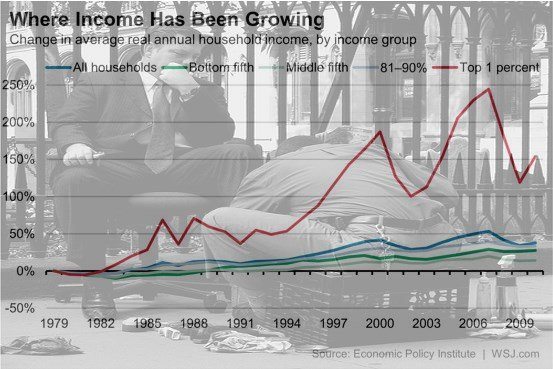
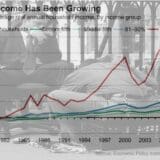
Americans don’t like inequality. We like to think of ourselves as a middle-class country where the top is not out of reach and the bottom doesn’t pose such a grim, cautionary specter that people fear for their livelihoods. We like to think that’s what makes us different from other societies. Or at least that’s the way it used to be.
CNN journalist John Blake, who grew up in Baltimore, remembers it this way: “Black men had good blue-collar jobs…Kids played baseball and basketball and every known sport at public fields and courts. We had summer jobs and internships.” Today, he says, “the factories and playing fields are locked behind gates or overgrown with weeds.”
Somehow the value of a stable, vital middle class has slipped from America’s vision for itself.
That shift characterizes America far beyond Baltimore.
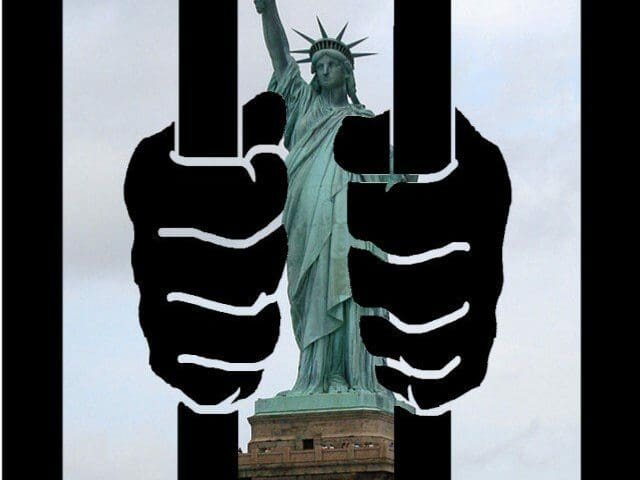

As many as five million undocumented immigrants are waiting in limbo as the Supreme Court reviews challenges to President Obama’s 2014 executive actions, Deferred Action for Childhood Arrivals (DACA) and Deferred Action for Parental Accountability (DAPA). But there’s one group that’s more than happy with the status quo.
A new look under the hood of the nation’s immigration detention system reveals a staggering trend: Immigrant detention has become increasingly reliant on facilities and services provided by private companies, which are driven by profit to keep or even expand existing services.
Companies like Corrections Corporation of America (CCA) and GEO Group — the nation’s two largest private prison companies — are benefiting from our bloated immigration detention system, which has grown by 75 percent over the last decade. Together, CCA and GEO Group operate eight of the 10 largest detention centers.
This year,
» Read more about: Immigrant Detention: Privatizing Misery »


For southwest Flint resident Qiana Dawson, it started when she was combing her 2-year-old daughter Rylan’s hair. Dawson was gently spraying water on the child’s head to ease the task, when Rylan started crying, as if she were in pain. She took her to a dermatologist.
And that was when her family discovered the problem with Flint’s water. “I don’t think you anticipate things like this,” Dawson said nearly two years later. “You take water for granted.” Even in hardscrabble Flint, drifting in and out of receivership since the last century, with a population that’s shrunk nearly 21 percent in 15 years and has one of the nation’s top crime rates — clean, healthy tap water seemed like a citizen’s basic right. Now Flint’s water is only safe for washing floors and flushing toilets. Dawson and her family of four have had to use bottled water for everything else—brushing teeth, cooking, washing vegetables,
» Read more about: Flint’s Water Disaster: A Lead-Pipe Cinch »


Reversing climate change and addressing income inequality are the twin challenges of our time. Solving them both means a safer, more stable future for generations to come.
If we don’t stop and reverse climate change, our environment and our economy could collapse. If we don’t address the growing gap between rich and poor, our political structures and our economy will continue to fray, robbing us of both the funds and the political will to address climate change.
These challenges are irreversibly linked — and we can’t solve one without solving them both.
That’s why progressives, labor leaders and everyone who cares about addressing these twin threats should oppose the California Public Utilities Commission’s recently proposed decision to require poor utility customers to subsidize richer customers and the new Wall Street-funded quasi-utilities serving these wealthy customers.
The CPUC’s decision is on a technical issue called Net Energy Metering: the system that provides subsidies for the installation of residential solar systems by forcing utilities to buy surplus energy generated on rooftops at an artificially high price.
» Read more about: Solar Decision Will Burn Low-Income Californians »


By now, many are familiar with the tragic details of the water crisis in Flint, Michigan. But a key chapter in the story is being overlooked.
In February 2015, almost a full year before the news of widespread lead poisoning gained headlines, the world’s largest private water corporation, Veolia, deemed Flint’s water safe. It was hired by the city to assess water that many residents had been complaining about—a General Motors plant had even stopped using Flint’s water because it was rusting car parts.
Veolia, a French transnational corporation, declared Flint’s water to be “in compliance with State and Federal regulations.” While it recommended small changes to improve water color and quality, Veolia’s report didn’t mention lead.
Flint’s water system needs to be fixed today regardless of costs. But one thing should be completely off the table: privatization.
Often,
» Read more about: French Water Company’s Dirty Role in Flint »


For most people, the end of last year signaled a time for goodwill, reflection and family. But for many, the holiday season was marked by murder and mayhem, forensics and frustration. Released stealthily by Netflix, as if the doc series itself was a smoking gun planted for viewers to stumble across, Making a Murderer is a gift which when unwrapped is all at once fascinating, frightful and infuriating.
Making a Murderer follows in the vein of such true-crime masterworks as Joe Berlinger and Bruce Bruce Sinofsky’s groundbreaking 1996 doc, Paradise Lost, and 2004’s lesser known Death on the Staircase, as well as last year’s killer Serial podcast and the lauded HBO series The Jinx. Moira Demos and Laura Ricciardi’s 10-hour opus retraces the twists and turns of a horrific series of events,
» Read more about: I Wake Up Streaming: Netflix’s ‘Making a Murderer’ »
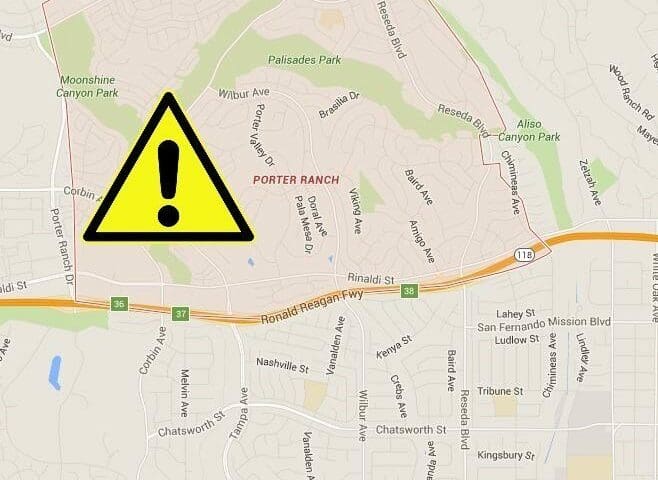

Four years ago, Robin Kutchai lost her husband to cancer. “We got the diagnosis that his body was full of tumors two weeks before he died,” she said, perched at the bar of the Woodland Hills Hilton, where she’s temporarily holed up. They had been married 10 weeks after they’d met, 35 years ago. Telling the story, her large, neatly made-up eyes welled with tears.
After her husband’s death, Kutchai sold their Simi Valley house and bought a townhouse in Porter Ranch, where she found a sense of belonging to help her through her grief. “It was always such a wonderful area,” she said. “It was a place where I felt safe being alone.”
The AQMD insisted it lacked the authority to order the draining of the Aliso Canyon well.
That all changed dramatically this past autumn,
» Read more about: Porter Ranch: Nosebleeds and Dead Hummingbirds »
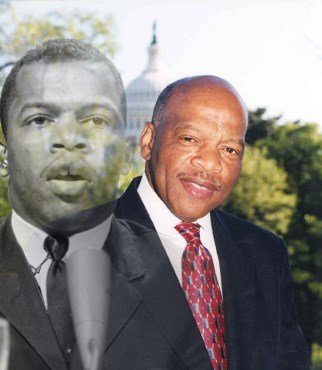

 It was a long way from the elegant ballroom of downtown Los Angeles’ Bonaventure Hotel back to his Aunt Senovia’s tin-roofed shotgun shack in rural Alabama. But somehow Georgia Congressman John Lewis, the iconic civil rights leader whose life began in the segregated Jim Crow South, was able to pull it all together for one thousand-plus people at the Martin Luther King Jr. Labor Breakfast, hosted by the L.A. County Federation of Labor.
It was a long way from the elegant ballroom of downtown Los Angeles’ Bonaventure Hotel back to his Aunt Senovia’s tin-roofed shotgun shack in rural Alabama. But somehow Georgia Congressman John Lewis, the iconic civil rights leader whose life began in the segregated Jim Crow South, was able to pull it all together for one thousand-plus people at the Martin Luther King Jr. Labor Breakfast, hosted by the L.A. County Federation of Labor.
Speaking before a giant photo of the Edmund Pettus Bridge, where he was beaten unconscious in the aborted 1965 Selma to Montgomery civil rights march, Lewis displayed the speaking and preaching skills he said he developed at age 14 from practicing in front of the chickens who were his responsibility on the family farm. “It seemed like more of those chickens listened to me then, than members of Congress do today,” he quipped.
Lewis’ father was a sharecropper and a cotton picker until 1944,